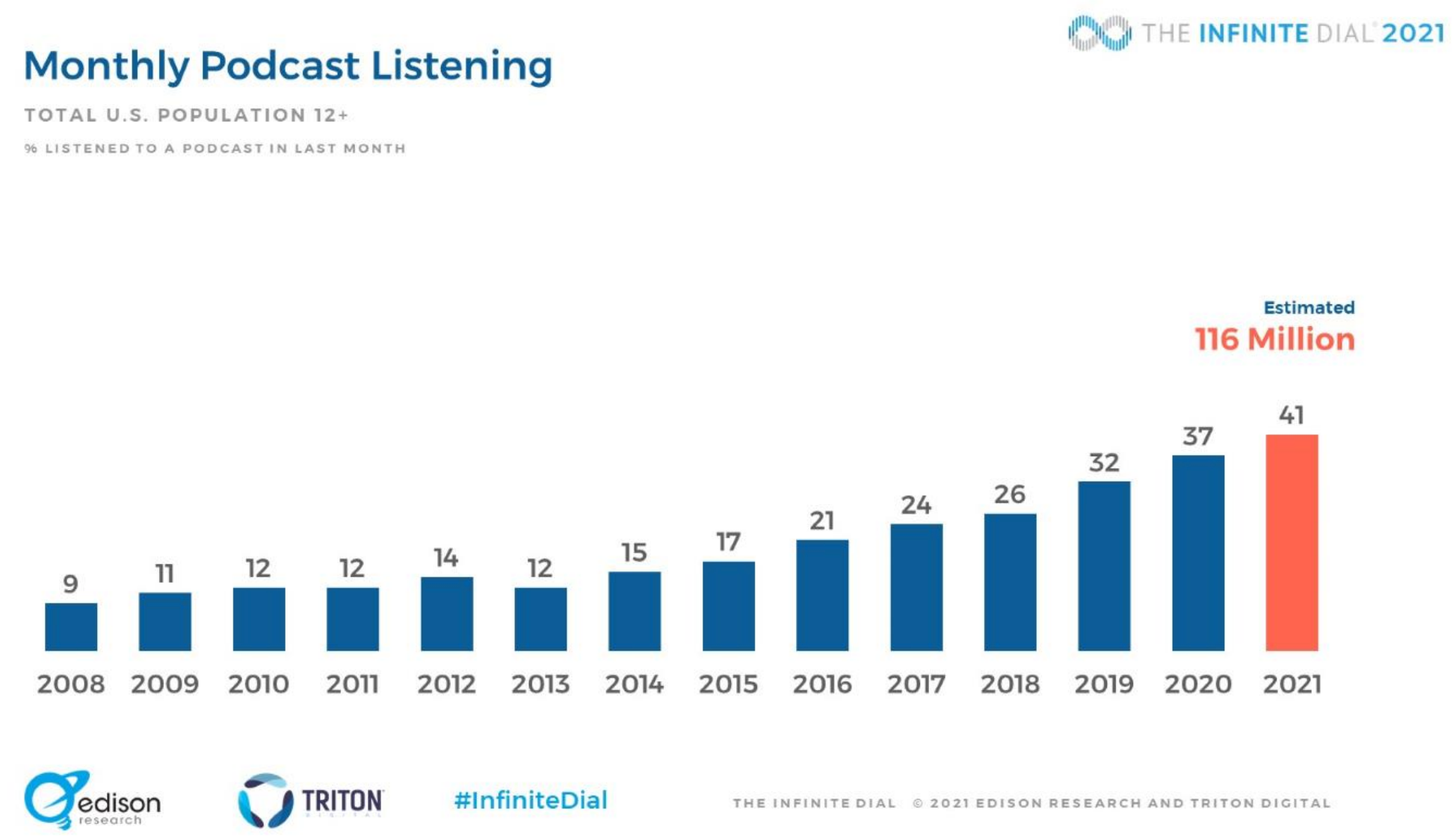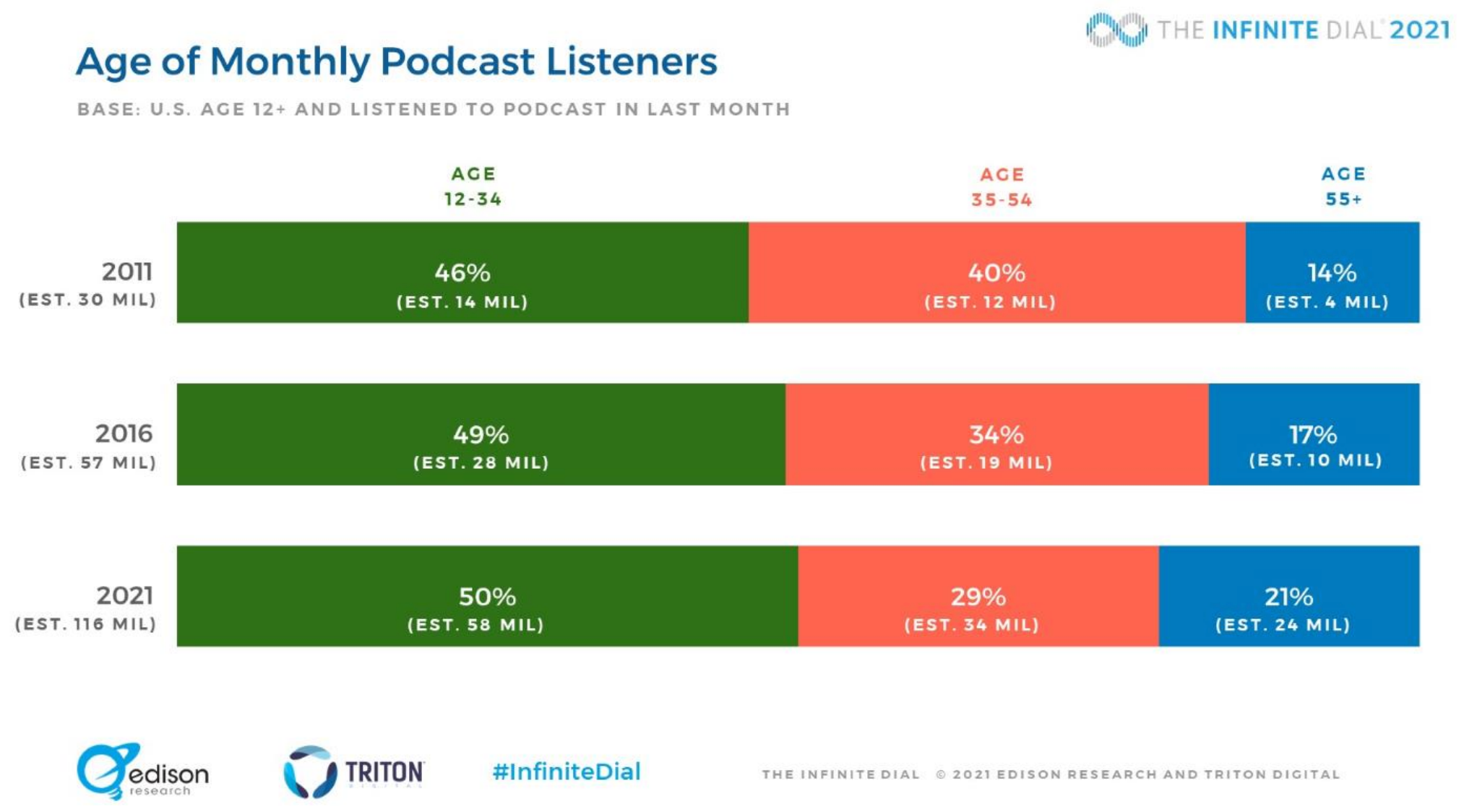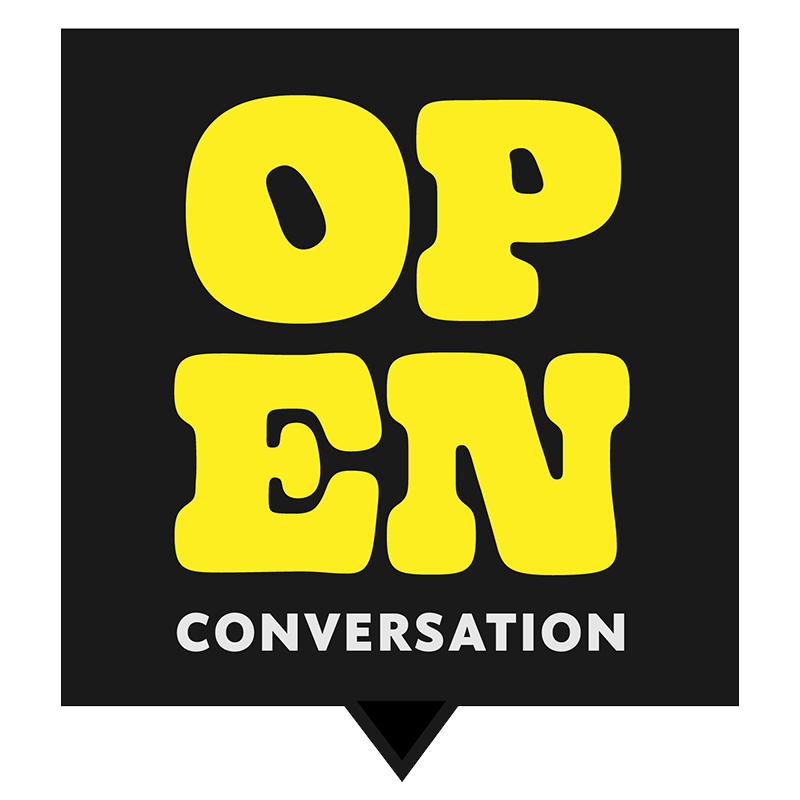I hear this question quite a lot from marketers and sales professionals who are ready to increase the volume in their funnel but aren’t yet sure if they’re prepared to take the leap into podcasting.
I’m a bit biased, as I see podcasting as one of the most effective ways to build loyal fans and customers through genuine connection. In fact, I believe audio is more potent than video in this regard.
If you’re curious if your customers listen to podcasts or are interested in them, recent research shows that the answer is a resounding “yes!”
The latest data, courtesy of Edison Research, show that 116 million Americans listen to podcasts every month:

The same data also demonstrates that in 2021, the number of female listeners reached an all-time high. And, coveted age groups like Gen Z (often referred to as “Zoomers”), Millennials, Gen X, and Baby Boomers all listen regularly:

Podcasts have also become increasingly popular with Hispanic/LatinX and Black listeners, and demographics “now very nearly reflect the diversity of the U.S. population,” according to Edison.
Looking at this data, it’s easy to see how your customers are probably already tuning in. So now, the most crucial step is to determine when and how you’ll add podcasts to your marketing mix.
When approached strategically, podcasting can fill gaps and bolster your messaging in ways that no other medium can. The trick is to effectively utilize all the resources at your disposal.
Here’s a simplified overview of how I typically advise my clients to use their podcasts in their marketing for maximum effect.
Customer Analytics are Key
Podcasting works best when you have a solid understanding of your customer base and what those customers need. While podcasts can be an incredible opportunity to listen to and learn about your customers, I recommend that you know some basics about them before adding podcasts to your marketing repertoire:
- What are their basic demographics?
- What kind of information resonates with them the most? Do they turn to your website for expertise and know-how? Do they love the human interest stories you feature on your Instagram? Do they reliably open your emails featuring market intel and analysis?
- What kinds of customers are your most loyal? Who comes back, again and again, to engage with your brand?
These critical pieces of information can help drive the best podcasting strategy for your company and ensure you answer your customers’ real needs.
And remember that podcasts allow you expansive, deep conversations to unpack any topic you can imagine. No other format enables you to tell such rich, immersive stories, so use this opportunity to share narratives that you know your audience craves.
Master Distribution Channels to Spread the Word
Podcasting is not the first tactic you should try when you’re building your brand. It’s vital to have established distribution channels at your fingertips to share your hard work and alert listeners that episodes are available, such as:
- Social media
- Newsletters
- Company blog
- Webinars or conferences
Additionally, one often overlooked distribution channel is your guests’ network. Who is more excited to share your podcast than the people featured on it? If your podcast format includes guests, don’t forget to make them a “kit” to promote their episode, which could include
- Photos and other imagery
- Suggested social media posts (text, handles, hashtags, etc.)
- Clips from the show (Audiogram has a simple tool to turn your audio clips into shareable videos for social media)
- A link to their episode’s dedicated web page, transcript, etc.
- Links to listen directly to their episode
Eventually, you can add paid advertising as another channel to promote your podcast, but I always recommend focusing on organic tactics (like the examples above) first, so you can learn and experiment before you dedicate additional budget to promotion.
Don’t Wait – Collaborate!
Podcasting is a team effort, and it’s essential for everyone to understand how assembling a capable team can completely transform your efforts.
You may be waiting for a moment when you have more hours to dedicate to your podcast. After all, a quality podcast can be time consuming with pre-production, recording, editing, promotion, etc. On average, I tell clients that a typical podcast episode takes 12 hours to produce (although this number can vary widely).
The reality is that you are going to need additional expertise to produce your podcast. From getting the proper gear and equipment to planning and scheduling guests and recording, to mixing and editing, to distribution, there’s a whole host of skillsets you might need to tap into.
Ensure that the podcasting company you hire has the experience and expertise to take your podcast from start to finish. This maximizes your efforts and takes the majority of the workload off you and your team so you can focus on other critical tasks.
You’re Ready
More likely than not, you’re probably more ready to add podcasting to your marketing mix than you think. Effectively getting your podcast out to the world to the right audience is within your grasp if you only utilize your resources to their fullest.
If you’re unsure how podcasting might fit into your unique marketing mix, I’d love to have an open conversation with you about it. In the meantime, join Open Conversation on Instagram or LinkedIn, or ask a question about anything podcasting, anytime (I might answer yours in an upcoming blog!).


No Comments.